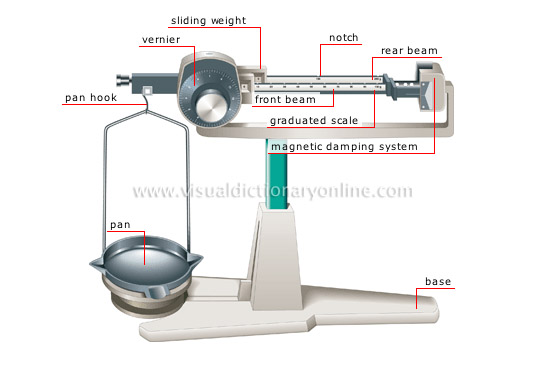unequal-arm balance
Scale used for weighing loads that has a beam with arms of different lengths; the shorter arm supports the pan and the longer arm supports the weights that slide to attain a balance.
pan 
Flat rigid stand on which the body to be weighed is placed.
rear beam 
Rigid metal bar along which the sliding weight slides to provide a relatively precise reading of the mass.
front beam 
Rigid metal bar along which the sliding weight slides to provide a very precise reading of the mass.
base 
Support that provides stability to the scale.
pan hook 
Curved part from which the pan is hung by means of rods.
vernier 
Small graduated dial that slides along the beams and provides a very precise reading of the mass.
graduated scale 
The divisions of equal length marked on the scale’s beam that constitute the units of measurement.
magnetic damping system 
Device made up of magnets that reduce the beams’ oscillations when the weights are moved to provide a quick reading of the mass.
notch 
Groove in which a sliding weight catches so that a precise reading on the graduated scale can be taken.
sliding weight 
Sliding part that is moved along the beams until a balance between the two masses is attained.









